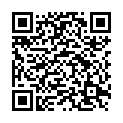|
|
|
| Module code: BAKM-010 |
|
|
2VU (2 hours per week) |
|
3 |
| Semester: 1 |
| Mandatory course: yes |
Language of instruction:
German |
Assessment:
Written exam (60 minutes)
[updated 19.11.2019]
|
Exam recurrence:
The information regarding exam recurrence is found within the exam policy of the study programme (ASPO).
|
BAKM-010 (P430-0019) Cultural Management, Propädeutikum, ASPO 01.10.2020
, semester 1, mandatory course
|
30 class hours (= 22.5 clock hours) over a 15-week period.
The total student study time is 90 hours (equivalent to 3 ECTS credits).
There are therefore 67.5 hours available for class preparation and follow-up work and exam preparation.
|
Recommended prerequisites (modules):
None.
|
Recommended as prerequisite for:
BAKM-040 Marketing
[updated 23.10.2018]
|
Module coordinator:
Prof. Dr. Kerstin Heuwinkel |
Lecturer:
Dozierende des Studiengangs
[updated 03.12.2021]
|
Learning outcomes:
After successfully completing this course, students will:
_ be able to analyze the history of business administration in the context of current developments,
_ be able to explain basic terms, concepts and theories of business administration and place them in a discursive context,
_ be able to describe various business sub-areas relevant to the cultural economy,
_ be able to analyze the framework conditions of company management in general, and in the cultural industry in particular
_ be able to analyze strategic planning and control concepts and apply the appropriate tools,
_ be able to deepen the knowledge acquired in the course on the basis of literature chosen by them themselves or specified by the lecturer,
be able to work independently on smaller problems in the form of case studies and exercises from practical experience using the theoretical knowledge acquired in the course.
[updated 19.11.2019]
|
Module content:
_ Basic concepts and contexts of business administration
_ Introduction to management
_ Historical development of management theory
_ Theoretical-conceptual basics
_ (Strategic) planning and control
[updated 19.11.2019]
|
Teaching methods/Media:
_ Lecture with group work, exercises and case studies
On the basis of selected data material and case studies, students will learn to develop concepts independently, implement and reflect on them.
[updated 19.11.2019]
|
Recommended or required reading:
_ Hungenberg, H./Wulf, T. (2015): Grundlagen der Unternehmensführung, latest edition, Berlin und Heidelberg.
_ Schmalen, H./Pechtl, H. (2013): Grundlagen und Probleme der Betriebswirtschaft, latest edition, Stuttgart.
_ Steinmann, H./Schreyögg, G./Koch, J. (2013): Management: Grundlagen der Unternehmensführung, latest edition, Wiesbaden.
_ Olfert, H. / Rahn H.J.: Einführung in die Betriebswirtschaftslehre, latest edition, Ludwigshafen 2008.
_ Schierenbeck, Heiner; Wöhle, Claudia B.: Grundzüge der Betriebswirtschaftslehre, latest edition, München 2012.
_ Schmalen, Helmut; Pechtl, Hans: Grundlagen und Probleme der Betriebswirtschaft, latest edition, Stuttgart 2009.
_ Steinecke, A.: Management und Marketing im Kulturtourismus, Kunst- und Kulturmanagement. Springer Fachmedien Wiesbaden 2013
_ Wittmann, W. et al (Hrsg.): Handwörterbuch der Betriebswirtschaft, 5. Aufl., Stuttgart 1995.
_ Wöhe, Günter: Einführung in die Allgemeine Betriebswirtschaftslehre, akt. Aufl., München 2005 or newer.
_ Zimmermann, O.; Schulz, G.: Zukunft Kulturwirtschaft, Essen, 2009
[updated 19.11.2019]
|


